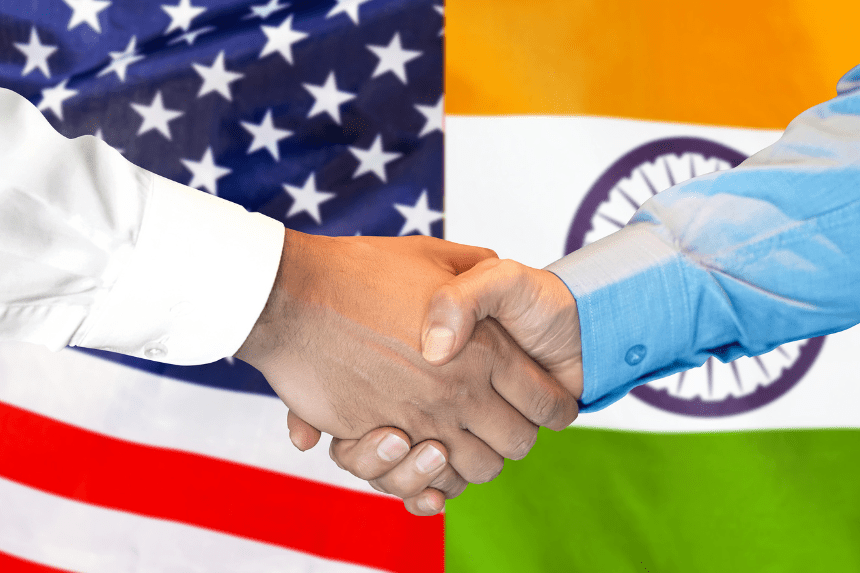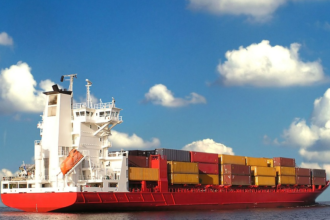The UK and India have inked a big trade pact, which means that the two countries will work together more on economic issues. It took three years to negotiate this deal, which includes important parts that will help both countries’ economies grow, create jobs, and improve exports. The main point of the arrangement is that it will be cheaper for the UK to send automobiles, whisky, and other important items to India. It will also be cheaper for India to send textiles, jewelry, and other things to the UK.
The deal was made official at a meeting between the Prime Ministers of India and the UK, Narendra Modi and Sir Keir Starmer. King Charles welcomed Prime Minister Modi to Sandringham, the royal estate in Norfolk, after the signing. The UK government has called the deal a major success, claiming it will create a lot of jobs, especially in fields like aircraft, manufacturing, and medical technology.
What are the main advantages of the trade deal between the UK and India?
The trade accord between the UK and India lowers tariffs on a lot of goods. This includes things like whisky, gin, aerospace products, luxury automobiles, and medical devices that the UK sells to other countries. In exchange, the UK will lower tariffs on Indian goods that it buys, such as apparel, jewelry, and frozen shrimp. The duty on whisky exports to India, for example, has been cut in half, from 150% to 75%. This makes UK whisky more competitive in the Indian market. This drop will keep happening until it reaches 40% by 2035, giving the UK a big edge in the global market.
The deal is expected to bring more than 2,200 new jobs to the UK, especially if Indian companies grow in the country. The arrangement will also boost UK exports to India by decreasing the average tariffs on goods from 15% to 3%. This will give British businesses access to new markets, especially in fields like aircraft, medical technology, and electronics. Here is the link to our article on India’s Trade Balance.
How will the trade deal between the UK and India affect different industries?
The trade deal between the UK and India will have a big effect on a lot of businesses. British enterprises that sell lamb, salmon, chocolates, and cookies will gain from lower tariffs. Also, Indian customers will now be able to buy UK-made goods like aircraft parts and luxury cars for less. These cuts will make UK businesses more competitive in the Indian market and open up new ways for the two countries to work together economically.
The UK government has stressed how important this pact is for the economy to grow. By lowering taxes on important imports and exports, it gives both countries the tools they need to grow their markets. The trade arrangement also makes it easier for Indian consumers to buy UK-made goods. India is one of the fastest-growing economies in the world.
What would the UK-India trade deal mean for the future?
The UK-India trade deal is expected to have effects that last for a long time. Both countries have agreed on a bigger strategy that involves stopping illegal immigration and improving cooperation in defense, education, and technology. The pact makes it possible for better agreements on sharing intelligence, which will help fight things like fraud, organized crime, and corruption.
Another big win for India is that it is no longer required to pay some national insurance contributions. This makes it easier for enterprises in both nations to do business. Indian workers who are temporarily sent to the UK will only have to pay social security taxes in their native country. This makes it easier for people to work across borders. Here is the link to our article on UK Trade Implications
Final Thoughts on the Trade Deal Between the UK and India
The UK-India trade deal is a big step forward in the two countries’ economic ties. The deal pledges to boost economic growth, create jobs, and promote international collaboration by opening up new trade routes and lowering tariffs on a number of items. As both countries seek to put this pact into action, the long-term benefits could change their economies and make their trade, technological, and defense relations stronger. The partnership not only opens up additional commercial opportunities, but it also shows that the UK and India will be more intertwined in the future.







